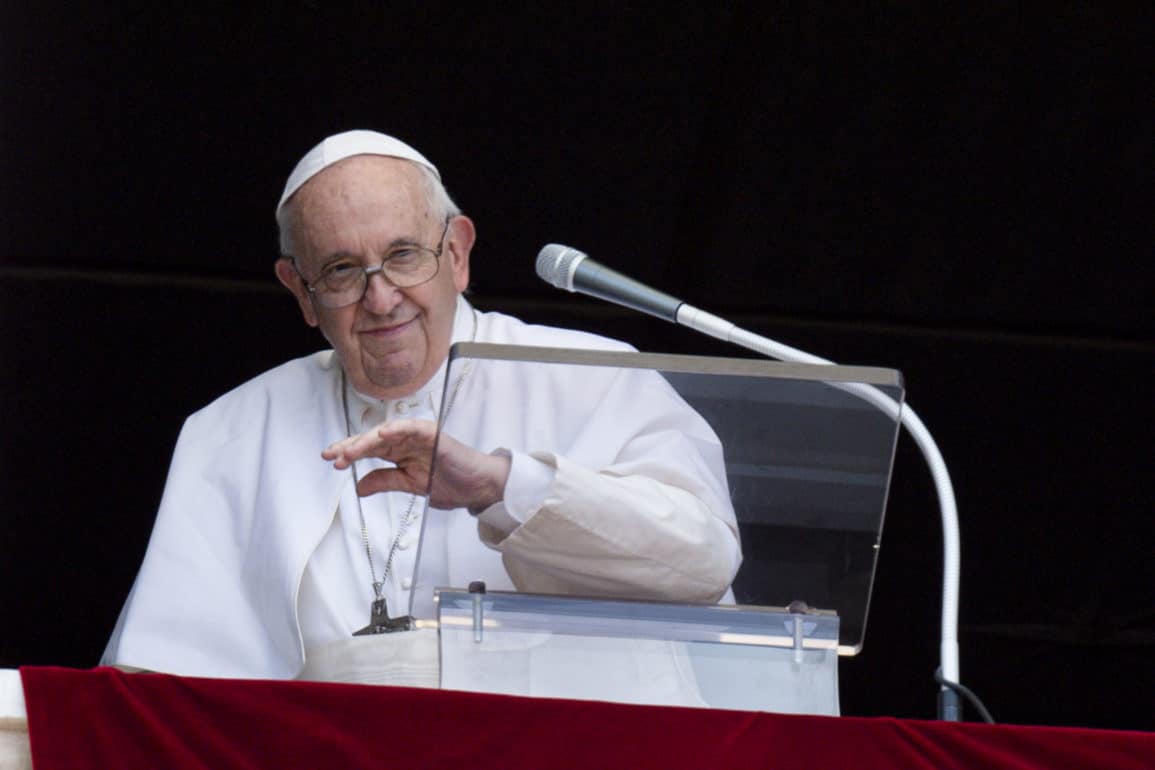Words of the Pope
Dear brothers and sisters,
The Gospel of today’s Liturgy, the Solemnity of the Patron Saints of Rome, reports the words that Peter addresses to Jesus: “You are the Christ, the Son of the living God” (Mt 16:16). It is a profession of faith, which Peter pronounces not on the basis of his human understanding, but because God the Father inspired it in him (cf. v. 17). For the fisherman Simon, called Peter, it was the beginning of a journey: it would indeed have to be a long time before the scope of those words entered deeply into his life, involving him entirely. There is an “apprenticeship” of faith, similar to ours, that also affected the apostles Peter and Paul. We too believe that Jesus is the Messiah, the Son of the living God, but it takes time, patience, and much humility for our way of thinking and acting to fully adhere to the Gospel.
The apostle Peter experienced this immediately. Just after having declared his own faith to Jesus, when Jesus announces that He will have to suffer and be condemned to death, Peter rejects this prospect, which he considers incompatible with the Messiah. He even feels compelled to rebuke the Master, who in turn says to him: “Get behind me, Satan! You are a scandal to me, because you do not think according to God, but according to men!” (v. 23).
Let us consider: does not the same thing happen to us? We repeat the Creed, we say it with faith, but when faced with the harsh trials of life, everything seems to falter. We are inclined to protest to the Lord, telling him that it is not right, that there must be other, more direct, less strenuous ways. We experience the laceration of the believer, who believes in Jesus, trusts in him; but at the same time feels that it is difficult to follow him and is tempted to seek paths other than those of the Master. St Peter experienced this inner drama, and he needed time and maturity. At first he was horrified at the thought of the cross; but at the end of his life he courageously bore witness to the Lord, even to the point of being crucified—according to tradition—upside down, in order to not be equal to the Master.
The Apostle Paul also had his own path, and he too passed through a slow maturation of faith, experiencing moments of uncertainty and doubt. The apparition of the Risen One on the road to Damascus, which changed him from a persecutor into a Christian, must be seen as the beginning of a journey during which the Apostle came to terms with the crises, failures, and constant torments of what he calls a “thorn in the flesh” (cf. 2 Cor 12:7). The journey of faith is never a walk in the park, for anyone, not for Peter nor for Paul, not for any Christian. The journey of faith is not a walk in the park, but is instead demanding, sometimes arduous. Even Paul, who became a Christian, had to learn how to be a Christian in a gradual manner, especially through times of trial.
In the light of this experience of the holy apostles Peter and Paul, each of us can ask ourselves. When I profess my faith in Jesus Christ, the Son of God, do I do so with the awareness that I must always be learning, or do I assume that I “already have it all figured out”? And again: In difficulties and trials do I become discouraged, do I complain, or do I learn to make them an opportunity to grow in trust in the Lord? For He, in fact— as Paul writes to Timothy—delivers us from all evil and brings us safely to heaven (cf. 2 Tim 4:18). May the Virgin Mary, Queen of the Apostles, teach us to imitate them by progressing day by day on the path of faith.










